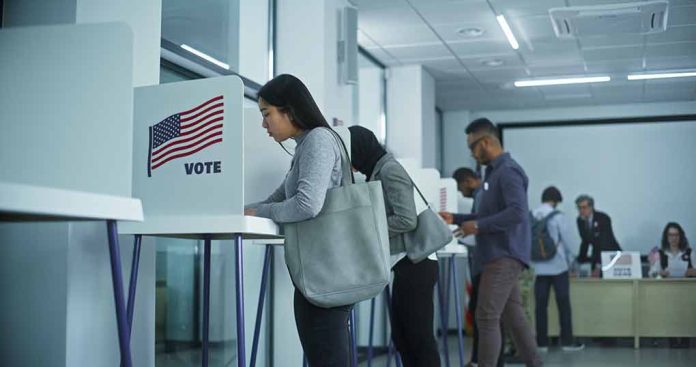
Independent presidential candidate Cornel West faces a major setback in Pennsylvania as a judge blocks his appearance on the election ballot, raising concerns about fairness for non-major party candidates.
At a Glance
- Commonwealth Court Judge Renee Cohn Jubelirer ruled against West’s candidacy paperwork
- West’s campaign lacked required affidavits for 14 of his 19 presidential electors
- The ruling highlights challenges faced by independent and third-party candidates
- Pennsylvania, with 19 electoral votes, is a crucial battleground state in the upcoming election
Court Decision Blocks West’s Ballot Access
In a significant blow to independent presidential candidate Cornel West, a Pennsylvania judge has ruled against allowing him to appear on the state’s ballot for the upcoming election. Commonwealth Court Judge Renee Cohn Jubelirer sided with the Secretary of State’s office, determining that West’s campaign failed to meet the necessary legal requirements for ballot access.
The primary issue centered around the lack of required affidavits for 14 of West’s 19 presidential electors. Judge Jubelirer agreed with the Secretary of State’s office that minor-party presidential electors must file affidavits, even if major-party electors are not held to the same standard. This decision underscores the complex and often stringent regulations governing election processes, particularly for candidates outside the two-party system.
Court says Cornel West can’t be on Pa. presidential ballot https://t.co/E6nA6j5UGP
— PennLive.com (@PennLive) August 24, 2024
Challenges for Independent Candidates
The ruling against Cornel West’s campaign highlights the broader issues that independent and third-party candidates face when attempting to secure a spot on election ballots. These candidates often encounter significant procedural and legislative barriers that can impede their ability to participate fully in the electoral process.
“Independent presidential candidate Cornel West lost a legal challenge Friday in his bid to get on the ballot in the battleground state of Pennsylvania.” – CBS News
While West faces challenges in Pennsylvania, it’s worth noting that he has had some success in other states. For instance, a state judge ruled that West must appear on voting ballots in Michigan, overturning a previous decision to remove him due to technical issues. Similarly, West won a legal battle in Maine, where he was declared qualified to appear on the state’s ballots.
Impact on the Election
The exclusion of Cornel West from the Pennsylvania ballot could have significant implications for the upcoming election. Pennsylvania, with its 19 electoral votes, is a crucial battleground state where the race is expected to be tight. The absence of West as an option for voters may influence the distribution of votes between the major party candidates.
“The Nov. 5 election is expected to be close in Pennsylvania, whose 19 electoral votes are tied with Illinois for fifth-most, and arguably are the most awarded by any battleground state.” – WTAE
This development is part of a larger trend of legal maneuvering around third-party candidates. Supporters of both major parties are engaging in efforts to either remove potential vote-siphoning candidates or support those who might hurt their opponents. The Green Party’s Jill Stein and the Libertarian Party’s Chase Oliver have successfully submitted petitions to appear on Pennsylvania’s ballot without challenge, while other minor parties continue to face legal hurdles.
Independent presidential candidate Cornel West lost a legal challenge Friday in his bid to get on the ballot in the battleground state of Pennsylvania. https://t.co/4V8ofujunN
— FOX 29 (@FOX29philly) August 24, 2024
Responses and Next Steps
West’s campaign has not yet announced whether they will appeal the decision to the state Supreme Court. The ruling has sparked debate about the fairness of ballot access requirements for independent candidates. Supporters argue that these stringent rules unfairly disadvantage non-major party candidates and limit voter choice.
As the election approaches, the legal battles surrounding ballot access for independent and third-party candidates are likely to continue. These challenges raise important questions about the balance between maintaining electoral integrity and ensuring a diverse range of choices for voters. The outcome of these legal contests could have lasting implications for the future of American democracy and the role of non-major party candidates in shaping the political landscape.
Sources
- Cornel West can’t be on Pennsylvania’s presidential ballot, court decides
- Cornel West can’t be on Pennsylvania’s presidential ballot, court decides
- Cornel West Can’t Be on Pennsylvania’s Presidential Ballot, Court Decides
- Court rules Cornel West can’t be on ballot in Pennsylvania
- Third-party presidential hopeful knocked off Pennsylvania ballot, as Cornel West tries to get on






